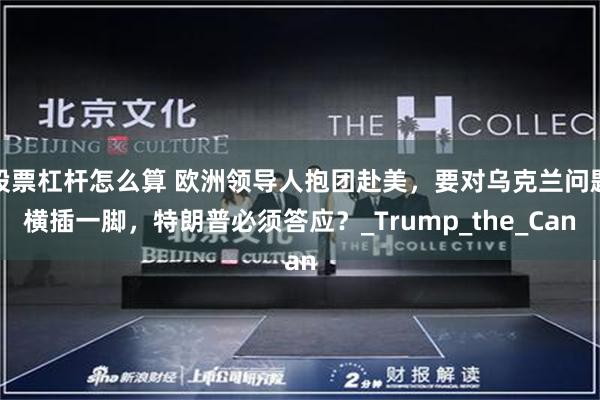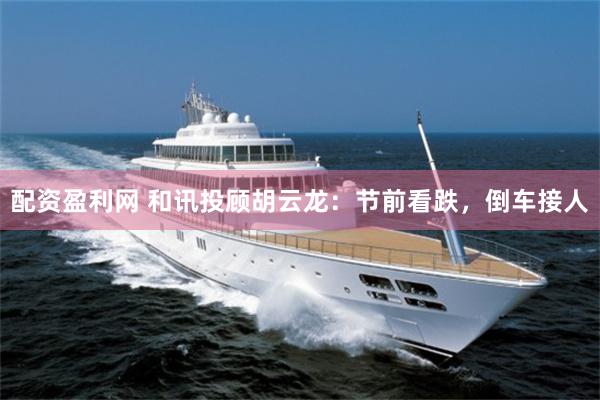
A High-Stakes Visit: Can Zelenskyy and the EU Sway Trump on Ukraine?股票杠杆怎么算
Following a summit in Alaska between Donald Trump and Vladimir Putin, an unexpected pressure has landed on Ukrainian President Volodymyr Zelenskyy. Trump's post-meeting pronouncements suggest a shift in focus, placing the onus on Ukraine to achieve a peace agreement with Russia, a nation he described as a formidable military power. This perceived pressure has spurred Zelenskyy and the European Union to seek ways to influence Trump's perspective, seemingly prioritizing this over Putin's rhetoric.
展开剩余86%In response, Zelenskyy has scheduled a crucial visit to the White House for renewed discussions with Trump and his advisors. Memories of a contentious previous meeting loom large, raising concerns about potential clashes. To mitigate this risk, a coalition of European leaders, including heads of state from key nations like the UK, France, Germany, Italy and Finland, as well as the European Commission President and the NATO Secretary-General, will accompany Zelenskyy. This unified front is intended to signal European solidarity, strength, and the importance they place on the matter. Moreover, their presence aims to prevent potential clashes between Trump and Zelenskyy, and to advocate for the EU's inclusion in future negotiations.
The central question remains: Can Zelenskyy and the EU succeed in making Trump heed their concerns? The key lies in understanding how Putin might have subtly influenced Trump's thinking during their meeting.
Putin may have successfully convinced Trump that brokering a comprehensive peace agreement that addresses the root causes of the conflict is more valuable than a mere ceasefire. This resonates with Trump's desire for a significant achievement, positioning him as a potential peacemaker in a complex crisis.
Previously, Trump had expressed frustration with the perceived difficulty and time commitment required to resolve the Ukraine crisis, and he was leaning towards a ceasefire that would freeze the conflict, seen as a quicker path to success. Such an outcome, while less comprehensive, would still represent a tangible diplomatic achievement, potentially boosting his chances of securing the Nobel Peace Prize.
However, his meeting with Putin in Alaska appears to have rekindled Trump's belief in the possibility of a comprehensive solution. This shift may lead Trump to view a forced ceasefire as inadequate, potentially conflicting with his ambition for a more lasting resolution. Trump's repeated emphasis on a comprehensive agreement, including a meeting between Zelenskyy and Putin, indicates his desire to swiftly achieve a lasting peace. This reveals Putin's persuasive influence on Trump during their summit.
Immediately following the Alaska summit, Trump briefed Zelenskyy and other European leaders, conveying his preference for a comprehensive peace agreement over a mere ceasefire. Reports suggest that Trump is considering a proposal where Ukraine cedes territory in exchange for peace, coupled with security guarantees akin to NATO's Article 5. This would necessitate concessions from both sides: Ukraine relinquishing territory, and Russia abandoning its demands for complete neutrality and demilitarization of Ukraine. The ultimate determination of who gains or loses more rests with Trump.
However, this proposed framework appears to disregard the concerns of the EU, effectively marginalizing them in the process. While harboring resentment towards Trump, Europe is determined to advocate for its interests and secure a voice in the negotiations.
The EU hopes their strong presence at the upcoming meeting will allow them to directly participate in discussions between Zelenskyy and Trump. Furthermore, they are seeking at least an observer role in any future trilateral summit between the U.S., Russia, and Ukraine, ensuring that Trump acknowledges and addresses European concerns.
Despite the EU's aspirations, their success remains uncertain. Trump, known for his impatience, seeks a swift resolution to the Ukraine crisis, viewing the EU as an impediment. He seems to believe that accommodating both Russian and Ukrainian interests is already a challenge, and the involvement of the EU would only complicate the matter further, potentially delaying a resolution indefinitely.
From this perspective, the EU's proactive engagement in the upcoming negotiations may not be welcomed by the U.S. administration. However, given Trump's background as a businessman and his penchant for unpredictability, the situation remains fluid. If Russia proves unreliable, and the EU offers sufficient incentives to the U.S., Trump's stance could shift once again, highlighting the precarious nature of the current geopolitical landscape.
"股票杠杆怎么算
发布于:四川省


